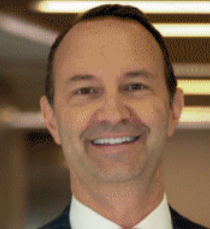The state of the global economy can prove to be friend or foe for fixed income investors. In this exclusive interview with PIMCO’s Ryan Blute and Terry Oh, we explore why they believe that today’s economic climate looks particularly exciting for fixed income.
With falling interest rates in most of the world’s economies, inflation falling back closer to the central banks’ target ranges, plus some concerns about valuations of equity markets and the dominance of the Mag7, it’s easy to see why Blute and Oh are excited about the opportunities they’re seeing in fixed income right now.
We also talk to Blute and Oh not only about where they’re seeing the strongest investment opportunities just now and key market considerations but also some of the factors which they believe really differentiate PIMCO amongst asset managers in the fixed income arena.
When it comes to fixed income, it’s clear that both Blute and Oh are extremely positive on the prospects here. At the start of our conversation, we were keen to find out their current outlook for the sector, where they are currently seeing the strongest investment opportunities and also what their thoughts were on the relative attractiveness of fixed income right now, as compared with other asset classes such as cash or equities.
According to Ryan Blute, the starting yield on bonds is particularly appealing now as he explains: “Fixed income is really exciting again. For investors who were managing portfolios from 2009 until 2022, they were living in a world of very low interest rates. We had the shock of ripping off the plaster in 2022 and interest rates subsequently rose faster than they have at almost any other time in history. It was a really tough market environment then for fixed income.
“But the exciting news is that in the bond market, the yields at which you invest is a really strong predictor of the return you are likely to get in the future. We’re now at a point where the bond market is yielding 5 to 6% in many cases for UK-based investors. This is a significant advantage relative to what we were accustomed to with gilts or strategic bond funds in the period following the financial crisis. This means that the starting conditions seem really attractive as a fixed income investor right now.
With central banks cutting rates and the interest rate cycle turning, would investors be more inclined to relinquish cash holdings to take advantage of the opportunities within fixed income? Blute sees things shifting in this direction as he explains: “After 2022, it was an enticing proposition for many investors to just hold cash. The cycle is shifting now though as we’re likely to see further interest rate cuts in the UK and in the US. I’d therefore argue that now is a perfect time for investors to shift out of cash, out of the money market funds, out of short-term gilts and back into active fixed income. Doing so would mean you get the wind at your back. Even though performance is not only reflected by the yield, Investors can see an exciting yield of circa 6% for a broad, high quality fixed income strategy and you have the potential for capital gains should rates fall further from here.
Active management in fixed income
When it comes to fixed income, passively following an index is a very different proposition to that undertaken by equity managers. But how? Blute goes on to say that: “Investing in fixed income is different to equities and the data bears this out. If you’re trying to beat stock market indices, it’s tough to find an investor who can consistently do it year after year and over the long run. But in fixed income it is quite different. The data bears out that even average managers in fixed income have historically beaten fixed income benchmarks and delivered alpha. At PIMCO, we always aim to be above average and, over time, we’ve been able to deliver those levels of returns for our investors. “For wealth managers, thinking about active management is really important in fixed income because the active global bond market is varied and complex, with several structural differences from the equity market. For example, over half of the bond market consists of central banks, public institutions, and insurers, which typically invest with goals such as interest rate management, rather than profit maximization. “There’s also a global opportunity set so we can buy bonds that are issued in dollars or even yen and bring them back to sterling for our UK clients. “Active bond managers have an opportunity to exploit these structural inefficiencies that don’t exist in equity markets, adding value for investors in excess of any additional fees they might command.”
Key considerations
There are many key considerations for investors looking to gain exposure to bonds. We asked Terry Oh to highlight some of those which stand out: “For the UK market in particular, one of the key features compared to other markets like Italy or parts of the world generally, is that it’s a very equity-oriented market. There’s a traditional stockbroking culture here. “According to the Investment Association, fixed income funds as a share of assets dropped to a 15-year low of 17.4% in 2022. From an asset allocation perspective, as an individual approaches retirement, the allocation to fixed income should increase in order to prepare for the need for a regular income post-retirement. Therefore, when we are discussing the UK market in terms of bonds, I would frame it in the context of why investors should allocate more to bonds vs equities.
“Firstly, we’re now in a completely different market backdrop. Investors got very anchored to virtually zero interest rate levels and then we saw this journey going from 0 to 5% risk free rates very quickly across most markets. That adjustment should be reflected in investor psychology.
“The other thing, of course, is the mechanics of bonds. As long as the underlying company or the government issuing the bond doesn’t go bankrupt, then you get your money back at maturity. It’s a very different mindset. “With the risk-free rate of return being so much higher than the average dividend yield on equities in the UK, this too is a relatively recent phenomenon. It is actually quite a strong signal for us as bond investors. The FTSE 100 dividend yield is a little more than 3.5% as we speak, in September 2024, but the Bank of England base rate is in the 5% range. That gap is interesting because a lot of people are used to the FTSE 100 dividend yield being much higher in recent years, because the risk-free rate was zero.
“One final point is to go back to what Ryan was just saying about active versus passive investment strategies. Our research, along with academic literature, shows that over the past ten years, only about 35% of active equity managers managed to beat the benchmark whereas the number is closer to 90% for global bonds. This makes sense because, in equities it’s a zero-sum game in terms of alpha. For one investor to have positive alpha, another must have negative alpha. In contrast, the majority of fixed income holders are not economic investors, which means it’s not a zero-sum game. Therefore, it makes sense that historically we have seen the majority of active fixed income managers outperform the benchmark.
Taking this expected alpha stream into account, and combining this with attractive starting yields for bonds, we see an extremely compelling case for active fixed income today – it’s possible to achieve equity-like returns in fixed income.”
A global presence in active fixed income
As a global leader in active fixed income, PIMCO’s scale and access, their ability to navigate complex markets, consistent, disciplined approach and quantitative rigour are all designed to help provide clients with an edge as they pursue their long-term goals. So how does this global exposure differentiate PIMCO as asset managers in fixed income?
As Ryan Blute explains: “We have trading capabilities across the globe, for example in Australia, Tokyo, Hong Kong, in the UK, and in America. By having this 24-hour trading platform, it allows us to look around the world to find the best opportunities. We have a team of more than 80 credit analysts around the world who are able to meet with the companies face-to-face, meet with the senior leadership, visit the factories and do bottom-up credit research to identify the best opportunities. That’s not something you can do if you have your entire team based in London.
“Our heritage in risk management is also important because we have a strong ability to do things like currency hedging, making sure we have diversified views reflected in our clients’ portfolios and use derivatives in a prudent way to make sure that we optimise the portfolio construction.
“Additionally, from an investor’s perspective, it’s important to recognise that you may be missing out on numerous opportunities if you don’t broaden your horizons as a bond investor. The UK bond market is just a small part of the global bond market. Even within the UK bond market, the underlying issuers can be based in the EU, the United States, or even Asia. Therefore, investing in UK fixed income isn’t solely about UK companies.”
“For example, many UK banks are borrowing in various currencies, with different maturities and across multiple points in the capital structure globally. This allows a manager like PIMCO to leverage our analytics and resources to identify the most cost-effective individual bonds for our clients, ensuring we are not limited to just what is issued in sterling.”
Opportunities in both private and public markets
“The big picture is that if investors only invest in public stock or bond markets, it can really limit them in terms of their investment universe” explains Terry Oh.
He continues: “Using the UK as an example, since the 1960s, the number of companies listed in the UK has gone down by about 75%1. A lot of big companies are choosing not to list on the stock market, and this trend is a global phenomenon. The story is similar for debt. According to McKinsey, private credit has grown to some $2t trillion by the end of 2023, around 10 times bigger than it did in 2009. So, by limiting yourself to just public companies, then you risk missing out on broader opportunities.
“Therefore, if you’re considering your pension or investment accounts and can afford to sacrifice some liquidity in return for enhanced income or capital appreciation, you can greatly expand your investment horizon and explore compelling options in private markets. At any given point, you might have more opportunities in public markets, as seen in the aftermath of 2020 and Covid, where there were a significant amount of really big bargains on the public market side. However, there are times when there might be areas in private markets where there are compelling opportunities. Having that flexibility as an investment manager to be open to both is important and is something we’re fortunate to be able to do here at PIMCO due to the strength and depth we have within the team and our investment strategy.”
Click here to learn more about PIMCO
About Ryan Blute
Head of Global Wealth Management, EMEA

Mr. Blute is a managing director and head of PIMCO’s global wealth management business in EMEA. Previously, he served as both the head of PIMCO’s Munich office and as the head of the firm’s product strategy group in EMEA. He is a founding member and head of PIMCO PRIDE across the region. Mr. Blute joined PIMCO in 2000 as an institutional account manager at the firm’s headquarters in Newport Beach. He holds an MBA from the University of Chicago Booth School of Business and an undergraduate degree from the University of Arizona. He is a CFA charterholder and also holds the certified public accountant designation.
About Terry Oh
Head of UK Wealth

Mr. Oh is an executive vice president and head of PIMCO’s global wealth management business in the U.K. Previously at PIMCO, he has worked closely with sovereign wealth funds (SWFs) and other institutional investors in EMEA, as well as multinational banks. Prior to joining PIMCO in 2011, he was an associate at TradeRisks, a corporate finance firm providing independent advice, financing, and risk management solutions. He has 13 years of investment experience and holds a master’s degree in finance from the London Business School and an undergraduate degree from the University of Oxford. He is also a CFA charterholder.
Notes
1. Source: London Stock Exchange, December 2022
All investments contain risk and may lose value. Past performance does not predict future returns.
This material contains the current opinions of the manager and such opinions are subject to change without notice. This material is distributed for informational purposes only and should not be considered as investment advice or a recommendation of any particular security, strategy or investment product. Information contained herein has been obtained from sources believed to be reliable, but not guaranteed.
PIMCO Europe Ltd (Company No. 2604517, 11 Baker Street, London W1U 3AH, United Kingdom) is authorised and regulated by the Financial Conduct Authority (FCA) (12 Endeavour Square, London E20 1JN) in the UK. The services provided by PIMCO Europe Ltd are not available to retail investors, who should not rely on this communication but contact their financial adviser. Since PIMCO Europe Ltd services and products are provided exclusively to professional clients, the appropriateness of such is always affirmed. PIMCO is a trademark of Allianz Asset Management of America LLC in the United States and throughout the world. © 2024, PIMCO Europe Limited. All rights reserved
Click here to learn more about PIMCO








